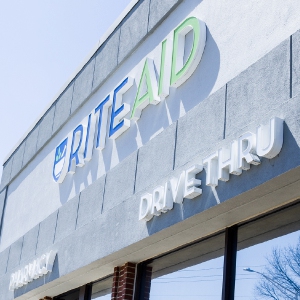Paint can disposal could become easier with state’s proposed drop-off recycling program

| Published: 04-13-2025 10:01 AM |
In many homes, half-empty paint cans sit untouched in basements and garages, collecting dust as homeowners wait for that one day a year when they can finally drop them off at their local transfer station.
But House Bill 451, which recently passed the House, aims to change that by creating a paint recycling program that makes disposal easier for New Hampshire residents and keeps old paint out of landfills.
State Rep. Karen Ebel, the bill’s primary sponsor, said the proposed paint stewardship program brings the state closer to its solid waste diversion goals.
“In an effort to preserve landfill capacity we should be recycling things that can be recycled and this is just really a great opportunity,” said Ebel. “People are trying to do the right thing with them, but many times it’s frustrating and difficult to wait till they have household hazardous waste days.”
Paint cans dumped in landfills are heavy and take up significant space, adding to capacity issues.
If the program is established in New Hampshire, it would allow consumers to take leftover paint, stains and other architectural coatings to participating retailers or municipal sites for recycling.
To fund the program, a fee would be added to the price of paint at purchase: $0.75 for containers larger than a half-pint up to a gallon, $1.75 for one- to two-gallon containers, and $3.00 for anything over two gallons.
But the fee structure is not final.
Article continues after...
Yesterday's Most Read Articles
Unlike a “bottle bill” program, this fee isn’t refunded when the paint is returned; rather, it helps cover the cost of recycling and collection, which is free for retailers and municipalities.
PaintCare, a non-profit established by the paint industry through the American Coatings Association, has already launched similar programs in 11 states with two more on the way. It started as a pilot program in Oregon in 2008.
Heidi McAuliffe, senior vice president of government affairs for the American Coatings Association, explained that the idea for this program came from discussions about how challenging and costly it is for local governments to manage leftover paint disposal
“It’s a very successful program,” said McAuliffe. “The retailers appreciate the program because it helps send foot traffic into their stores.”
Schools, hotels, and government buildings that accumulate a large number of paint cans after a project can also contact PaintCare to pick them up at no cost.
Beyond convenience, the program could also save municipalities money when they host hazardous waste collection days.
Reagan Bissonnette from the Northeast Resource Recovery Association said towns were spending, on average, $7,100 a year just to collect and dispose of paint at those events.
“A lot of the paint that is currently collected at household hazardous waste days is going to be either combusted for fuel or properly disposed of in some way and so no one actually benefits,” said Bissonnette. “Those paint cans are often metal, and they could be recycled and are recycled through a paint stewardship program.”
Household hazardous waste collection events usually accept only oil-based paints, because latex paint, commonly used for indoor painting, isn’t considered hazardous material.
To dispose of latex paint, people are asked to let it dry out completely in its can with the lid off or mix it with absorbent materials such as kitty litter or sand before tossing it in the trash.
However, this proposed program takes both oil-based and latex paint cans.
According to McAuliffe, 80% of the paint collected is recycled and the remaining 20% is incinerated for energy recovery.
If implemented in New Hampshire, the program will allow anyone to bring in paint cans, no matter how old they are or when they were purchased.
“It’s a great program, and I think that a lot of people would be excited to know what to do with their cellars full of paint,” said Ebel.
Sruthi Gopalakrishnan can be reached at sgopalakrishnan@cmonitor.com. Subscribe to her Trash Talk newsletter for more reporting on the environment and solid waste.







 Cause of Hopkinton brush fire still under investigation
Cause of Hopkinton brush fire still under investigation Granite Geek: A contrary Earth Day thought – we shouldn’t pick up litter
Granite Geek: A contrary Earth Day thought – we shouldn’t pick up litter Weekend clean-up was part of Earth Day celebrations
Weekend clean-up was part of Earth Day celebrations McKee Square Rite Aid sold, staying put
McKee Square Rite Aid sold, staying put
